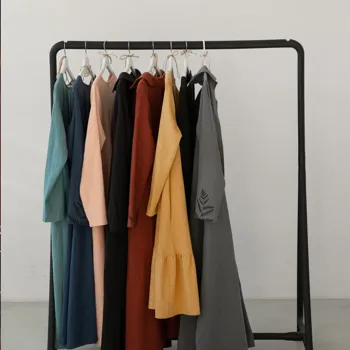Discover the world of Fashion Ethics: From choices to impact. Dive into the importance and power of ethical fashion!
Fashion, for many of us, is a way to express ourselves, to feel good, and to keep up
with the latest trends. We love a good bargain, a stylish outfit, and the confidence that comes with looking our best.
But have you ever stopped to think about where your clothes come from, who made them, and what impact their production has on the environment and the people involved? This is where fashion ethics come into play, and it's becoming increasingly important for all of us to understand and embrace.
What Exactly is Fashion Ethics?
Fashion ethics, in simple terms, is about making responsible choices when it comes to our clothing.
It's about considering the social and environmental impact of the fashion industry, from the raw materials used to the working conditions of garment workers, all the way to how we dispose of our unwanted clothes.
Ethical fashion aims to minimize harm and maximize positive impact, ensuring that everyone involved in the fashion supply chain is treated fairly and with respect, and that the planet is protected.
Why Should We Care About Ethical Fashion?
Well, for starters, the conventional fashion industry, often referred to as "fast fashion," can have some serious negative consequences.
Think about the low prices you often see – these often come at the expense of garment workers, who may be paid extremely low wages, work in unsafe conditions, and face long hours.
Moreover, conventional fashion relies heavily on environmentally damaging practices, like using large amounts of water, polluting rivers with染料, and generating textile waste that ends up in landfills. By choosing ethical fashion, we can help change this.
We can support fair wages, safe working conditions, and environmentally friendly practices. We can contribute to a more just and sustainable fashion industry.
How Can You Make Ethical Fashion Choices?
Making the switch to ethical fashion doesn't have to be difficult or expensive. Here are some simple steps you can take:
Buy less, choose well
Instead of constantly chasing the latest trends, focus on buying fewer, higher-quality items that will last longer. Invest in classic pieces that can be mixed and matched, and that you'll love wearing for years to come. This reduces demand for fast fashion and minimizes waste.

Look for ethical brands
Research brands that prioritize fair labor practices, use sustainable materials, and are transparent about their supply chains. Many brands are now committed to ethical production, and they often provide information on their websites about their practices.
Look for certifications like Fair Trade or GOTS (Global Organic Textile Standard). It might take a little detective work, but it’s worth it.
Consider secondhand
Buying secondhand clothing is a fantastic way to reduce your environmental impact and save money. There are many great thrift stores, consignment shops, and online platforms where you can find unique and stylish pieces at a fraction of the price of new clothing.
It’s like treasure hunting, and you’re giving clothes a new life.
Upcycle and repair
Before throwing away damaged clothing, consider whether it can be repaired or upcycled. Learning basic sewing skills can help you fix tears, replace buttons, and even transform old clothes into new items. There are plenty of tutorials online to guide you.
Embracing your inner desi jugaad can do wonders!
Wash clothes responsibly
Washing clothes less often and using cold water can save energy and prolong the life of your garments. Avoid using harsh chemicals and consider using eco-friendly detergents. Also, air drying clothes whenever possible is a great way to reduce your carbon footprint.
By being more mindful about our choices, we can encourage an industry that values individuals involved, the environment, and creative designs.
Understanding Labels and Certifications.
When navigating the world of ethical fashion, it's useful to understand some common labels and certifications.
Fair Trade certification ensures that products are made in accordance with fair labor standards, providing fair wages and safe working conditions for workers.
The Global Organic Textile Standard (GOTS) certifies that textiles are made with organic fibers and processed according to strict environmental and social criteria. OEKO-TEX Standard 100 certifies that textiles are free from harmful substances.
Looking for these labels can help you make informed choices.
Supporting Local Artisans and Crafts.
Another way to promote ethical fashion is to support local artisans and crafts.
By buying handmade clothing and accessories directly from artisans, you can help preserve traditional crafts, support local economies, and ensure that your money goes directly to the people who created the items.
This also provides transparency in the supply chain, as you often know exactly who made your clothes and how they were made. Plus, handmade items are often unique and of high quality.
Fashion ethics is not just a trend; it’s a responsibility.
By making even small changes in our shopping habits, we can collectively make a big difference in the lives of countless people and the health of our planet. So, the next time you go shopping, take a moment to think about the impact of your choices.
Choose ethical fashion – it’s a stylish and sustainable way to look good and feel good about what you wear.
AI Generated Content. Glance/InMobi shall have no liability for the content












